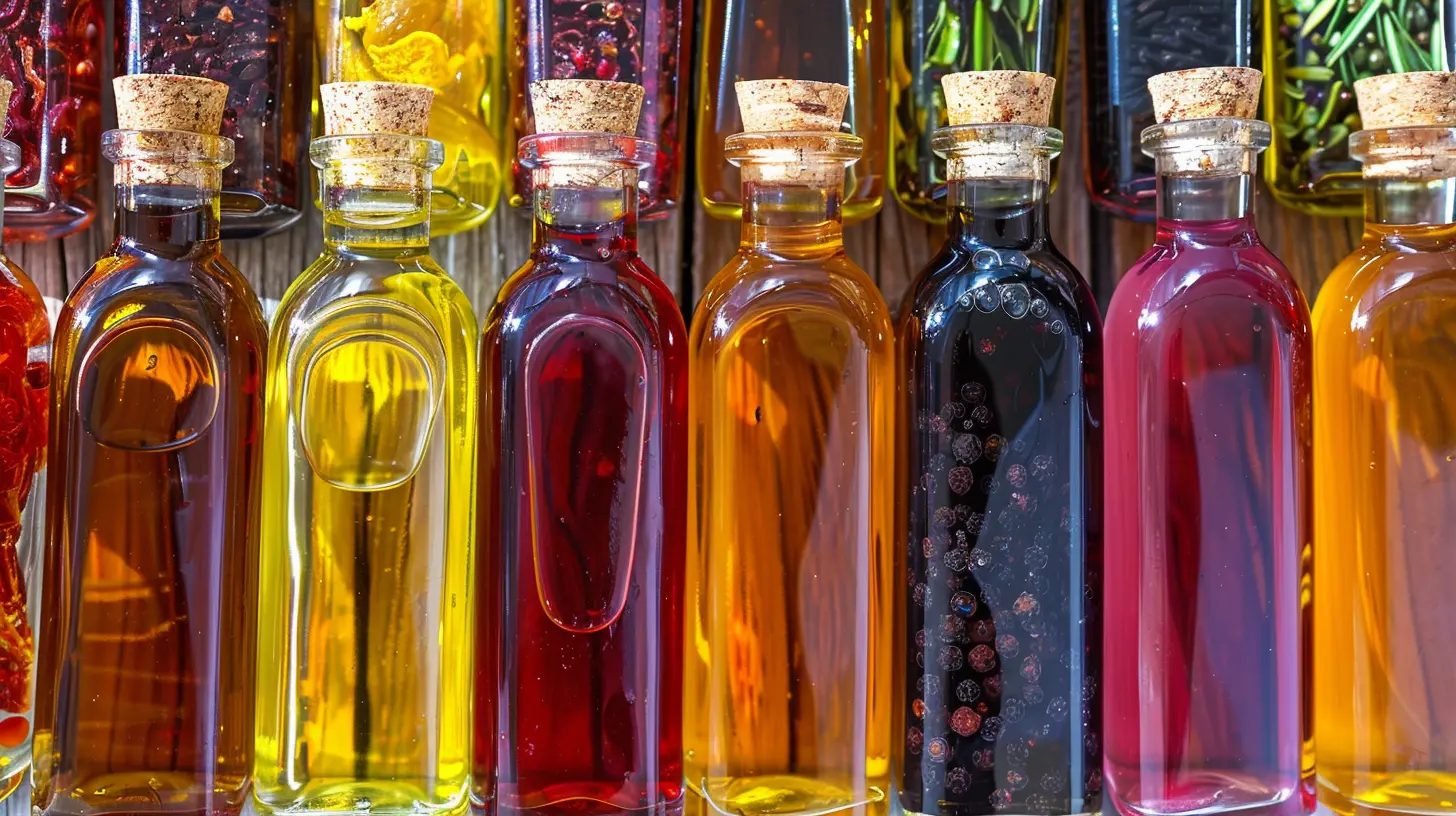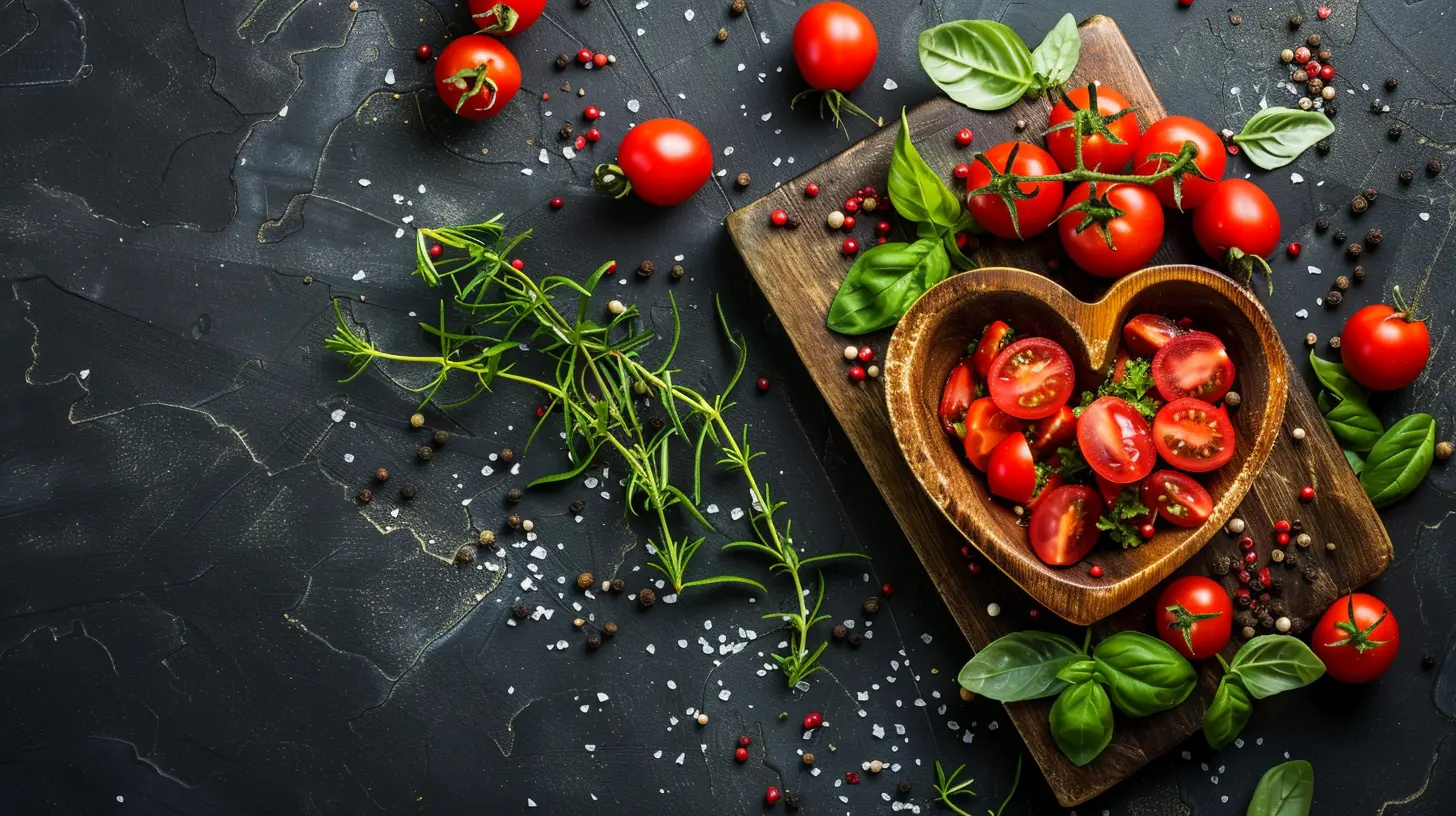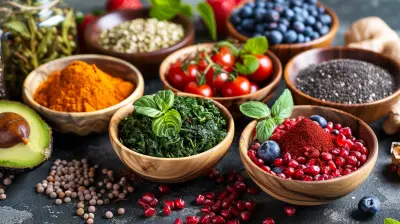11 February 2025
When it comes to maintaining a healthy heart, your everyday cooking choices can make a world of difference. One of the easiest, yet most impactful, changes you can make is swapping out unhealthy cooking oils for heart-friendly ones. But let’s be real – with the endless options out there, it can feel like you’re drowning in a sea of choices. The good news? I’m here to break it all down for you in human terms (no dictionary needed).
Ready to dive in? Let’s talk about the best heart-healthy oils, what makes them so good for you, and how to incorporate them into your meals without turning your kitchen into a chemistry lab. 
Why Your Choice of Oil Matters
Oil is a staple in cooking – it’s in your frying pan, salad dressings, marinades, and even baked goods. But did you know that the type of oil you use can either support your heart health or sabotage it?The fats in cooking oils come in different forms: saturated fats, monounsaturated fats, and polyunsaturated fats. While the first one (saturated fats) can clog your arteries if consumed in excess, the latter two are your heart's best friends. These fats can lower bad cholesterol (LDL), reduce inflammation, and keep your blood vessels functioning like a well-oiled machine (pun intended).
So, let’s focus on oils that are high in monounsaturated and polyunsaturated fats – the ones your heart will thank you for. 
The Top Heart-Healthy Oils for Cooking
Here’s the rundown of oils that are not just delicious but also heart-approved. Each oil has its unique flavor and cooking properties, so you can pick one based on what’s on the menu.1. Extra Virgin Olive Oil (EVOO)
If there were a “queen bee” of heart-healthy oils, it would be olive oil. Especially the extra virgin kind – it’s minimally processed and packed with antioxidants called polyphenols, which fight inflammation like little warriors in your bloodstream.Olive oil is loaded with monounsaturated fats, known to lower bad cholesterol and raise good cholesterol (HDL). It’s also been shown to reduce the risk of heart disease, thanks to the Mediterranean diet, which is practically swimming in olive oil.
Best Uses:
Drizzle it over salads, use it in marinades, or dip fresh bread into it. But here’s a tip: EVOO has a low smoke point, so avoid high-heat frying with it – it’s better for sautéing or finishing dishes.2. Avocado Oil
Avocado oil is like olive oil’s trendy cousin – it has a similar nutrient profile but can handle the heat better. It’s rich in monounsaturated fats and vitamin E, which not only supports heart health but also nourishes your skin (bonus!).What stands out about avocado oil is its high smoke point, meaning it doesn’t break down and release harmful compounds when you’re cooking over high heat.
Best Uses:
Perfect for frying, grilling, or roasting. It also has a mild, buttery flavor, so it works well as a salad dressing base.3. Canola Oil
Canola oil gets a bad rap sometimes, but hear me out – it’s one of the healthiest and most budget-friendly choices out there. It’s low in saturated fat and high in both monounsaturated fats and omega-3 fatty acids, which are incredible for your heart.Plus, it has a neutral flavor, which makes it a versatile option for nearly any type of cooking.
Best Uses:
Great for baking, stir-frying, or making sauces. Its light taste won’t overpower your dishes.4. Flaxseed Oil
Okay, flaxseed oil isn’t your go-to for frying chicken, but it deserves a shout-out for its amazing omega-3 content. These fatty acids are anti-inflammatory and work wonders for lowering blood pressure and supporting overall cardiovascular health.Keep in mind, though, that flaxseed oil is sensitive to heat, so it’s best used as a finishing oil or in cold dishes.
Best Uses:
Use it in smoothies, drizzle it over cooked veggies, or make it the star of your salad dressings.5. Walnut Oil
Walnut oil is another hidden gem when it comes to heart health. It’s rich in polyunsaturated fats, particularly alpha-linolenic acid (ALA), a plant-based omega-3 fatty acid that’s linked to lower inflammation and reduced cardiovascular risk.While a bit pricier than some other oils, the nutty flavor of walnut oil can transform simple dishes into gourmet masterpieces.
Best Uses:
Ideal for finishing dishes, adding depth to salads, or drizzling over roasted veggies.6. Sesame Oil
Don’t sleep on sesame oil! It’s a staple in many Asian cuisines and has a unique nutty flavor that’ll make your taste buds dance. The good news? It’s packed with heart-healthy polyunsaturated fats.Best Uses:
Use it in stir-fries, as a marinade base, or to add a burst of flavor to soups and noodle dishes. But go easy – a little goes a long way.
Oils to Use Sparingly
Not all oils are created equal. Oils high in saturated fats, like coconut oil, palm oil, and butter, should be limited in your diet. While coconut oil has a bit of a health halo due to its medium-chain triglycerides (MCTs), it’s still high in saturated fat and can raise cholesterol levels.
Tips for Using Heart-Healthy Oils
Now that you’ve got your list of hero oils, here are a few tips to make the most of them:1. Watch Your Portions: Even heart-healthy oils are calorie-dense, so don’t go overboard. A tablespoon here and there goes a long way.
2. Choose Wisely: Match the oil to your cooking method. For high-heat cooking, go for avocado or canola oil. For salads and drizzling, stick with EVOO, flaxseed, or walnut oil.
3. Store Properly: Oils can go rancid if exposed to light, heat, or air. Keep them in a cool, dark place and make sure the lids are on tight.
4. Experiment: Don’t be afraid to mix and match oils to find your favorite flavors. Cooking should be fun, not a chore!
The Bottom Line
The type of oil you use in your cooking may seem like a small detail, but it can have a big impact on your heart health. By choosing oils rich in monounsaturated and polyunsaturated fats, you’re giving your heart the TLC it deserves.So, the next time you’re at the store, take a second to scan the label. Think of it like choosing fuel for your car – your body runs better when you give it the good stuff. And remember, a healthy heart leads to a happier you.
Ready to make the switch? Trust me, your heart will thank you – and so will your taste buds.







Alvin Wood
Love these tips for heart health!
March 7, 2025 at 4:03 AM